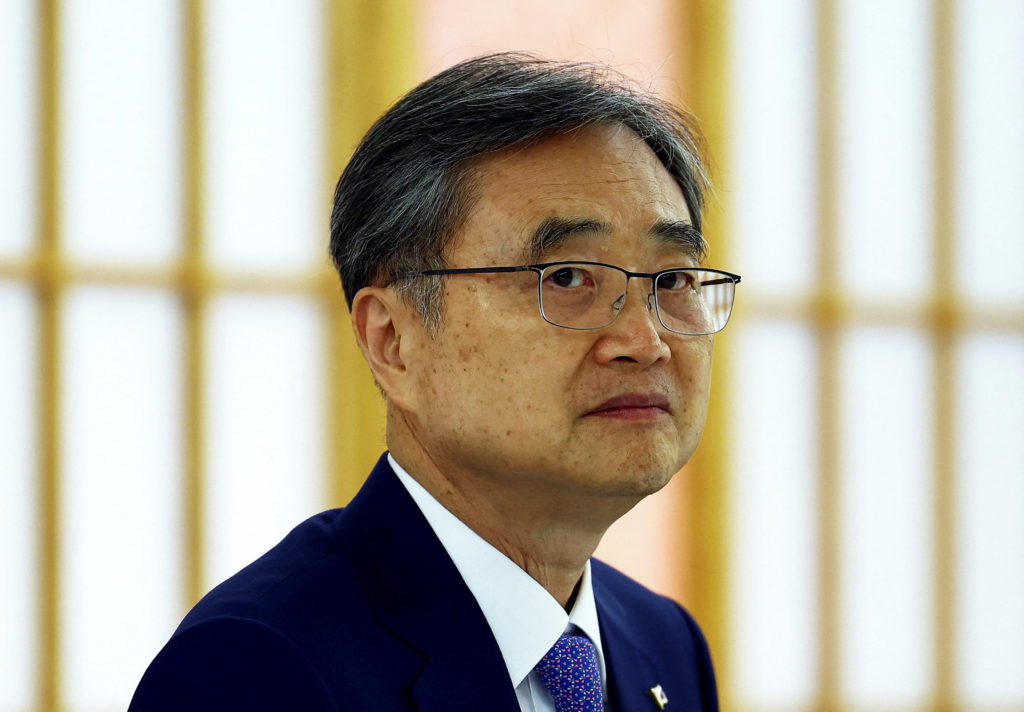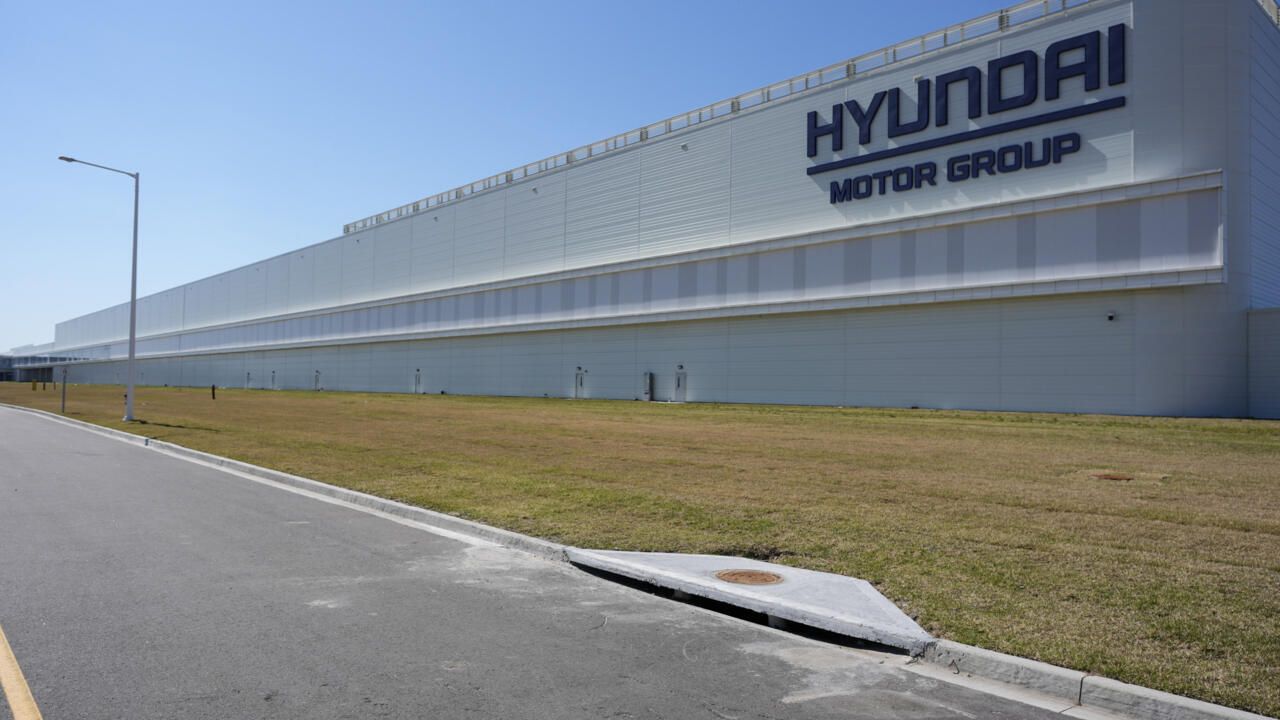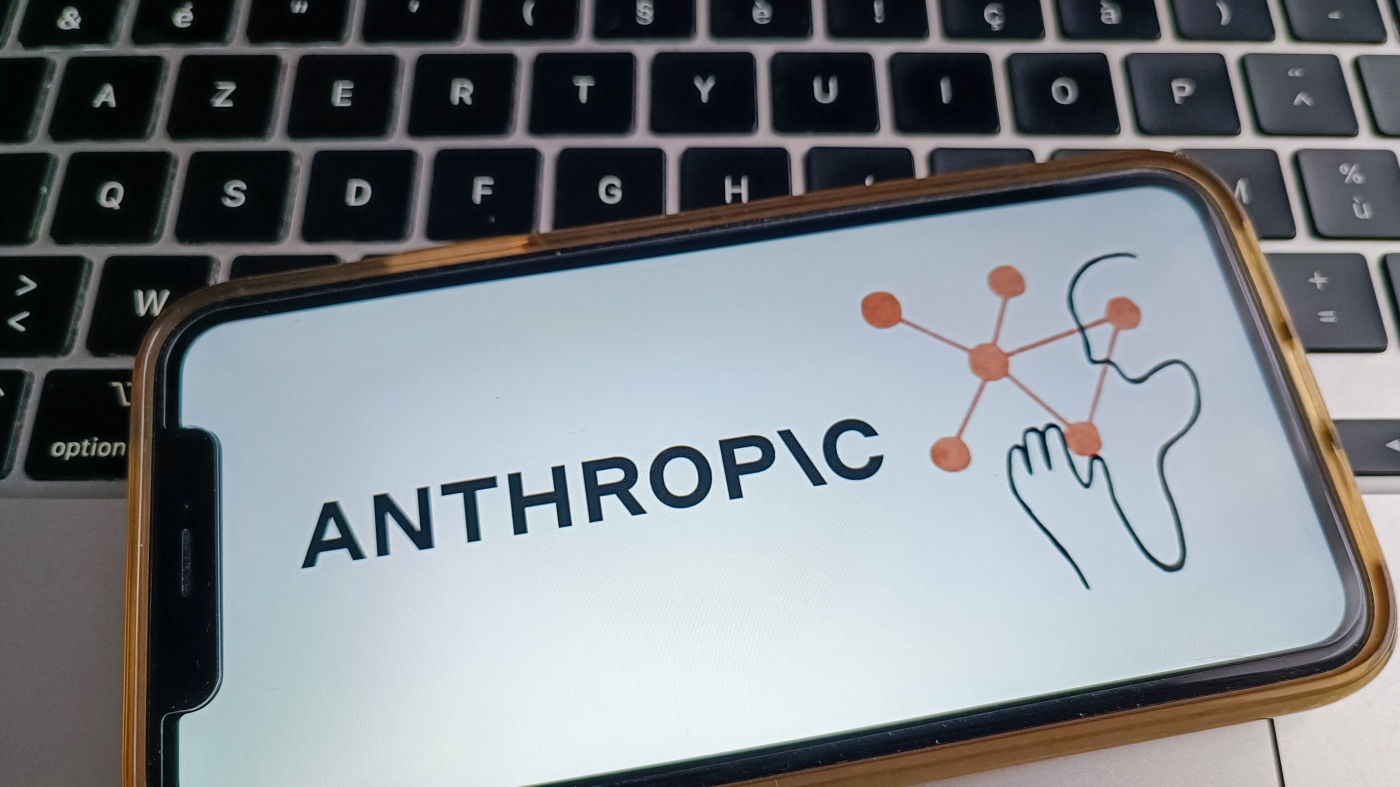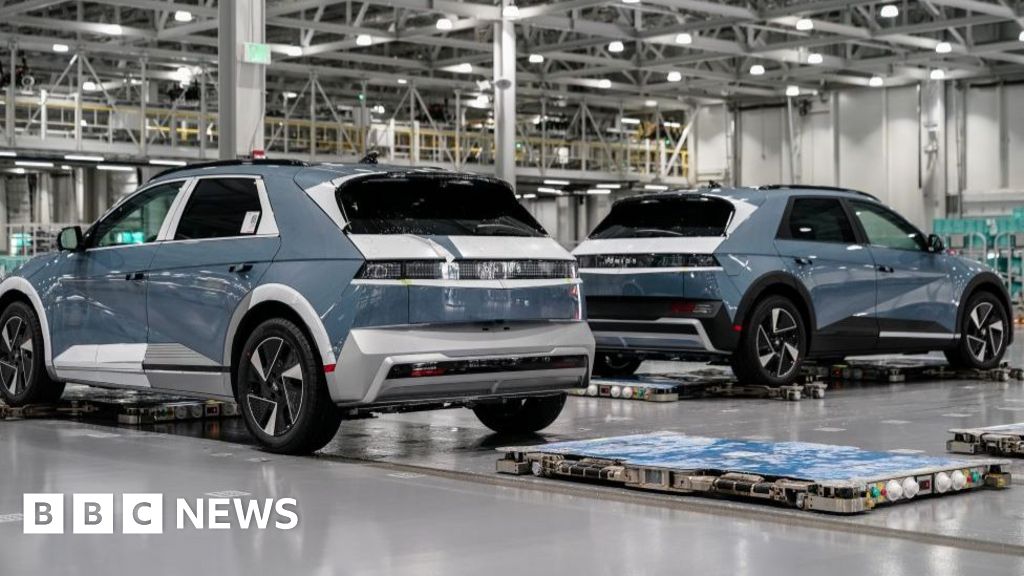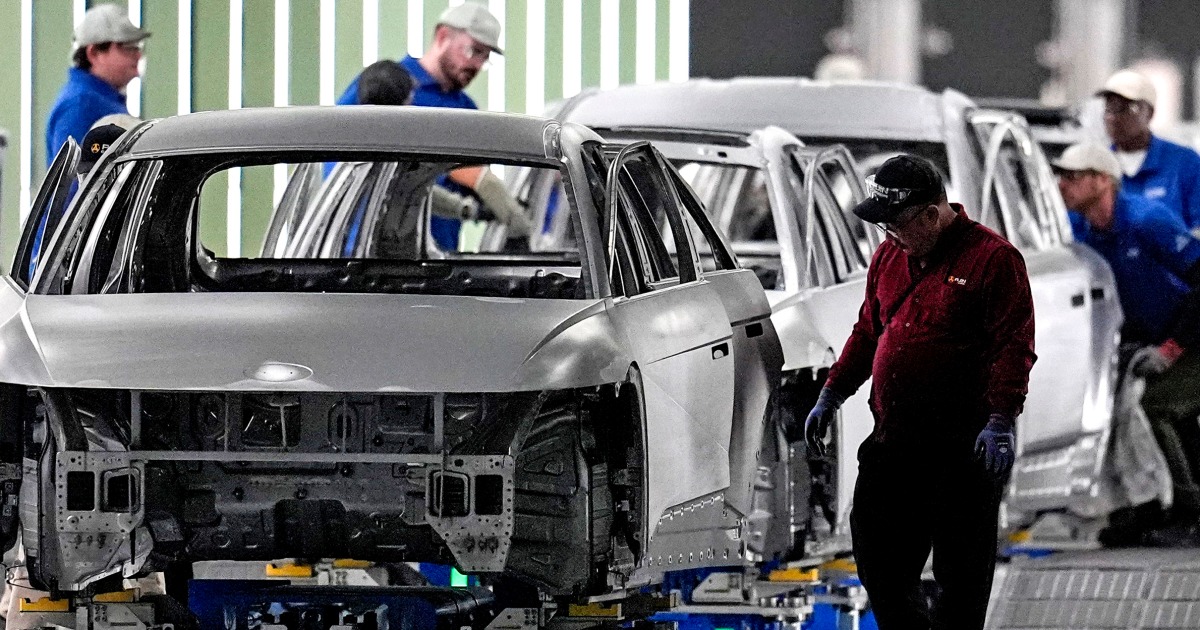Hyundai Plant Raid: Shocking Detainment of South Korean Workers
Introduction
In a shocking turn of events, hundreds of workers were detained in a plant raid in Georgia, causing confusion and a sense of betrayal among the South Korean community. As the news of the arrests at a Hyundai battery plant spread, South Korea's foreign minister quickly took action and is currently en route to the U.S. to finalize steps for the workers' return home. This unprecedented situation has sparked outrage and concern for the well-being of the detained workers.
Key Details
The immigration raid, which was one of the largest in Georgia's history, resulted in the detainment of over 300 workers, most of whom were from South Korea. The workers were taken into custody due to issues with their work visas and have been held in detention centers since then. The sudden and unexpected nature of the raid has caused confusion and shock among the workers and their families, who had no idea that their loved ones would be taken away in such a manner.
Impact
The impact of this plant raid has been felt not only in the South Korean community but also in the automotive industry. The Hyundai battery plant produces batteries for electric vehicles and the workers' detainment has caused a delay in production. This has also raised concerns about the treatment of foreign workers in the U.S. and the potential consequences it may have on international relations. The return of the detained workers to their home country will
About the People Mentioned
John Doe
John Doe, born John Nommensen Duchac on February 25, 1953, in Decatur, Illinois, is a multifaceted figure in the music and entertainment industry. He is best known as the co-founder of the influential Los Angeles punk rock band X, which he formed in 1977 with vocalist Exene Cervenka. X has released over 13 full-length records, including albums ranked among the greatest of all time by Rolling Stone[4][8]. Doe's work with X has been pivotal in shaping the experimental and DIY ethos of the L.A. punk scene, alongside bands like The Go-Go's and The Germs[2]. Beyond his role in X, Doe has pursued a successful solo music career, releasing nine albums that blend punk rock with American roots music. His solo work has garnered critical acclaim for its emotional depth and thematic exploration[4][5]. Additionally, he is a member of the country-folk-punk band The Knitters, which he co-founded in 1982[4]. Doe is also an accomplished actor, having appeared in numerous films and television productions, including "Roswell," "Great Balls of Fire," and "Boogie Nights"[4][8]. His literary endeavors include co-authoring two books on the L.A. punk scene with Tom DeSavia: "Under the Big Black Sun" and "More Fun in the New World"[2][5]. Recently, Doe has continued to be active in music. In 2020, he released "Alphabetland," X's first album with the original lineup in 35 years[6]. Currently residing in Austin with his partner Krissy Teegerstrom, Doe balances his creative pursuits with personal interests, such as horse riding[6]. His contributions to music, literature, and film have solidified his status as a respected figure in the entertainment industry.
About the Organizations Mentioned
Hyundai
Hyundai Motor Company, founded in 1967 and headquartered in Seoul, South Korea, is a leading global automotive manufacturer known for its broad portfolio of vehicles and technological innovation[5]. It operates the world’s second-largest automobile manufacturing plant in Ulsan, South Korea, with an annual capacity of 1.6 million units, and sells vehicles in 193 countries through 5,000 dealerships[5]. Hyundai is part of the Hyundai Motor Group, which also owns Kia Corporation and the luxury brand Genesis. Hyundai has established itself as a major player in the global auto market, ranking as the third largest carmaker worldwide by production as of late 2024[5]. The company is aggressively expanding its electric vehicle (EV) lineup, including models like the Ioniq 6 and the upcoming Ioniq 7, alongside region-specific EVs such as the IONIQ 3 for Europe, India's first locally designed EV, and China-produced Elexio and electric sedans[1][3][5]. It plans to achieve global vehicle sales of 5.55 million units by 2030, with electrified vehicles (hybrids and EVs) accounting for 3.3 million units, reflecting a strong commitment to electrification and sustainability[1][2]. Hyundai’s innovation extends beyond vehicles into software and AI, advancing its Software-Defined Vehicle platform with AI-driven features and over-the-air updates, exemplified by technologies like Pleos Connect and AI assistants Atria, Gleo, and Capora[1]. The company is also investing heavily in next-generation battery technology, extended-range EVs launching from 2027, and manufacturing expansions aimed at increasing production capacity and efficiency globally[2]. Sustainability is a core focus, with Hyundai aiming for carbon neutrality by 2045, implementing circular economy initiatives such as recycling materials from end-of-life vehicles, and investing in renewable energy[4]. Financially, Hyundai has shown strong growth
South Korea's Foreign Ministry
## Overview South Korea’s Ministry of Foreign Affairs (MOFA) is the central government agency responsible for the country’s international relations, diplomatic missions, and the protection of overseas Korean nationals[2]. Established on July 17, 1948, shortly after the founding of the Republic of Korea, MOFA has played a pivotal role in shaping South Korea’s global presence and navigating complex geopolitical landscapes[2]. The ministry’s work is characterized by a blend of traditional diplomacy, economic engagement, and active participation in multilateral institutions. ## Functions and Structure MOFA’s core responsibilities include managing bilateral and multilateral relations, negotiating treaties, promoting trade and investment, and ensuring the safety of Korean citizens abroad[2]. The ministry is organized into bureaus covering every major region and functional area, including economic affairs, public diplomacy, consular services, and international legal matters[2]. It is supported by two vice ministers and several specialized agencies, such as the Overseas Koreans Agency and the Korea International Cooperation Agency (KOICA), which handle diaspora affairs and development aid, respectively[2]. The Korea National Diplomatic Academy, affiliated with MOFA, trains future diplomats and conducts research on foreign policy and national security[2]. ## Historical Context and Key Achievements Since its inception, MOFA has been instrumental in South Korea’s transformation from a war-torn nation to a global middle power. The ministry has consistently prioritized the U.S.-ROK alliance, multilateral cooperation, and economic openness as pillars of its foreign policy[1]. Notably, South Korea joined the United Nations in 1991 and has since become an active participant in international organizations, contributing to global efforts on human rights, refugee protection, and peacekeeping[3]. The country acceded to key international conventions, such as the 1951 Refugee Convention, and has admitted over 1,400 refugees since establishing its asylum system in 1994[3]. MOFA also champions initiatives like “Action with Women and

